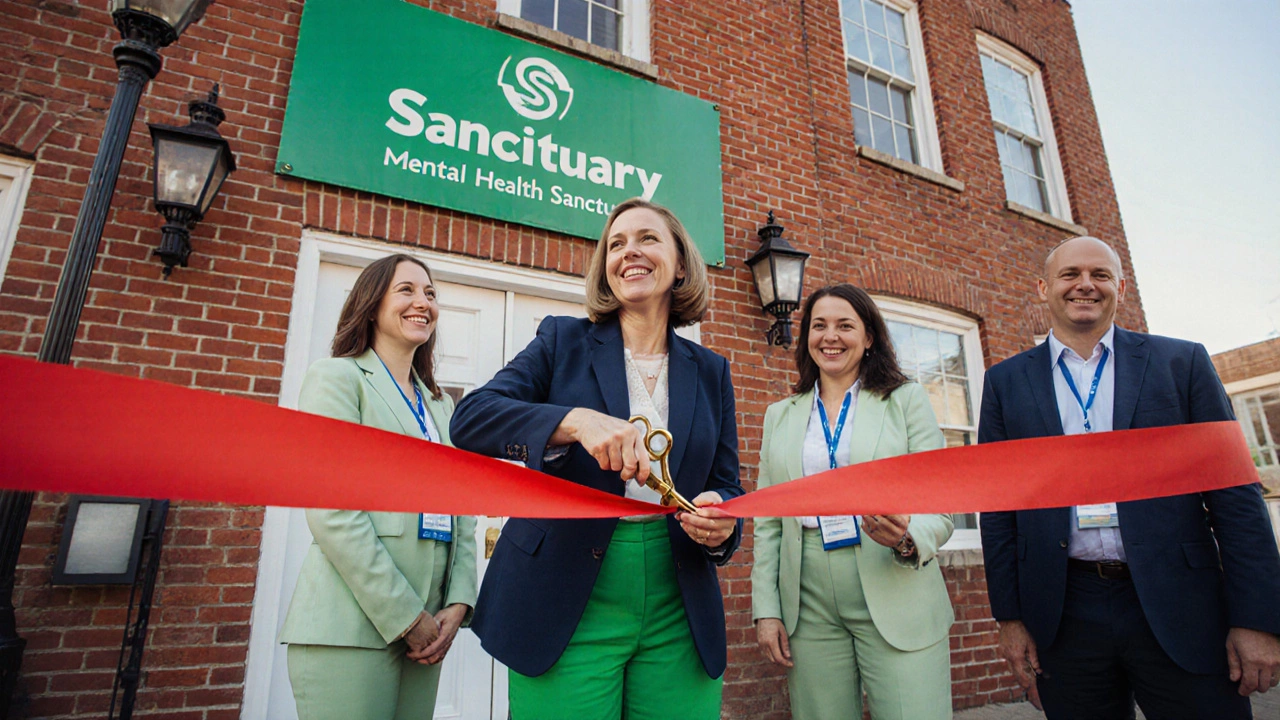
When Debra Clark, head of wellbeing at Towergate Health & Protection announced the theme for World Mental Health DayUnited Kingdom, the message was clear: employers should hand the reins of mental‑health care to the people who live it every day. The statement, published on October 7, 2024 by IFA Magazine, warned against the old‑school, "dictatorial" approach and urged a shift toward empowerment, resilience training, and digital tools.
Why workplace mental health matters now
Here’s the thing: the modern office is as much a psychological battlefield as it is a productivity hub. According to Towergate’s own research, 31 % of employers expect a surge in mental‑health demand by 2025, and that figure jumps to 62 % when you bundle related concerns like male mental health (17 %) and line‑manager wellbeing (14 %). In plain English, more than half of all businesses anticipate having to respond to a wave of mental‑health requests.
These numbers aren’t conjured out of thin air. They line up with data from GRiD, the group‑risk industry body, which found that 88 % of employers already offer some form of preventative staff support. Of those, 43 % say mental‑health programmes are the single most helpful benefit, beating physical health (39 %) and financial health (27 %). The gap widens dramatically by company size: 97 % of firms with over 250 staff provide preventative support, versus just 76 % of micro‑employers (under ten employees).
Towergate’s playbook for a resilient workforce
Turning theory into practice, Towergate recommends three pillars. First, a robust suite of wellbeing initiatives that span mental, physical, social and financial health. Second, targeted resilience training – courses and webinars that teach employees how to bounce back from setbacks, stay calm under pressure, and keep their emotional battery charged. Third, the integration of mental‑health apps like Headspace, which offers guided meditation, sleep casts, and podcasts on topics ranging from financial stress to fertility concerns.
"Mental health needs to be prioritised in the workplace but this does not need to be a dictatorial approach," Clark said. "Employees should instead be supported by being given the means to take responsibility for their own mental health." She added that the growing availability of Employee Assistance Programmes (EAPs), virtual GP services, and even inpatient psychiatric care has turned what used to be a crisis‑only safety net into a everyday resource.
Interestingly, while some apps still carry a price tag, many are now bundled into comprehensive benefits packages at no extra cost to the employee – a subtle but powerful shift that signals mental health is moving from the periphery to the core of compensation discussions.
Industry voices weigh in
Christine Husbands, a mental‑health advocate cited in related coverage, reminded us that "seeking support should be viewed as a sign of strength." Her comment underscores a cultural change: early intervention is no longer a last‑ditch effort but a preventative habit that can curb long‑term decline.
HR directors across the UK are feeling the pressure. One senior manager at a mid‑size tech firm (who asked to remain anonymous) told us that after the 2024 World Mental Health Day campaign, their team rolled out a pilot resilience workshop and saw a 15 % drop in sick‑day usage over the next quarter.

What this means for the average employee
For you, the everyday worker, the upside is tangible. Imagine logging into your company portal and finding a one‑click link to a meditation session, a budgeting webinar, or a quick chat with a counsellor – all during office hours. That’s the kind of seamless access Towergate envisions, and the kind of environment that could turn the 62 % demand figure into a reality where support feels as routine as a coffee break.
The twist is that while large corporates are already on board, smaller firms risk lagging behind. If you work for a micro‑employer, you might still be waiting for the first mental‑health policy to land on the desk. That disparity is something Towergate hopes to narrow with industry‑wide advocacy and scalable digital tools.
Looking ahead to 2025
Next year’s World Mental Health Day theme – "Mental health is a universal human right" – will push the conversation from workplace policies to societal obligations. Towergate’s stance signals a move toward a shared‑responsibility model: employers furnish the resources, employees engage actively, and together they cultivate a culture where mental health isn’t a checkbox but a lived reality.
What to watch for? Expect more data‑driven wellbeing dashboards, increased budgeting for mental‑health apps, and a louder call for legal frameworks that treat mental‑health support as a statutory right rather than a perk.

Key facts
- World Mental Health Day 2024 theme: “It’s time to prioritise mental health in the workplace.”
- 31 % of employers forecast higher mental‑health demand for 2025; 62 % when including related categories.
- GRiD research: 43 % of firms see mental‑health preventative support as most beneficial.
- Large corporates (250+ staff) offer preventative programmes at 97 % vs 76 % for micro‑employers.
- Headspace is among the leading apps integrated into employee benefits.
Frequently Asked Questions
How will the shift toward employee‑led mental health affect small businesses?
Small firms may face tighter budgets, but digital platforms like Headspace offer tiered pricing that can fit modest budgets. Industry groups are also pushing for subsidised licences, meaning micro‑employers could soon access the same tools as larger corporates without breaking the bank.
What specific resilience training does Towergate recommend?
The company highlights short‑form webinars on stress inoculation, interactive workshops on cognitive‑behavioural techniques, and on‑demand video modules that teach practical skills like breath‑control and reframing negative thoughts.
Why is mental health considered a universal human right for 2025?
International bodies such as the WHO have long framed mental health as a right, but 2025 marks the first year a UN‑backed resolution explicitly links workplace access to mental‑health services with that right, urging governments to legislate supportive employment policies.
What role do mental‑health apps play in corporate wellbeing strategies?
Apps like Headspace provide scalable, data‑driven content that can be personalised at the individual level. They also generate usage analytics that help HR measure engagement and ROI, making them a cost‑effective complement to traditional EAPs.
What evidence shows early mental‑health intervention improves outcomes?
Studies cited by GRiD indicate that employees who access support within two weeks of a stress trigger are 40 % less likely to develop chronic anxiety or depression, and they report a 25 % faster return to baseline productivity.







Write a comment